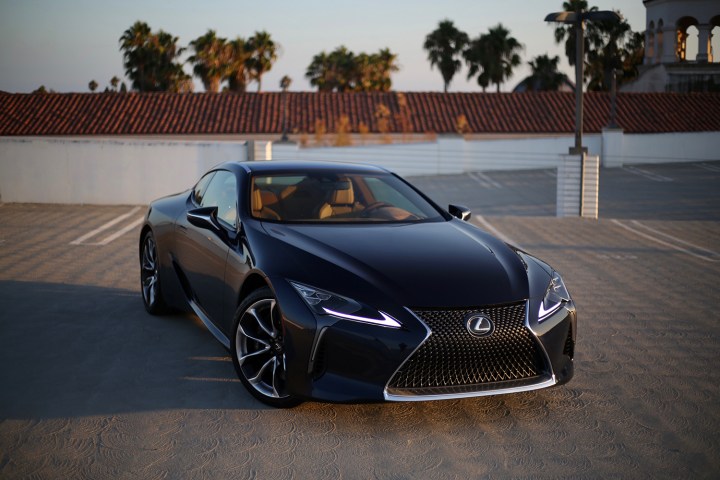
Lexus and parent company Toyota pioneered gasoline-electric hybrid technology more than two decades ago, but both have been reluctant to release a fully electric model. This policy is set to change during the 2020s, and Digital Trends learned Lexus plans to offer an electrified variant of every nameplate in its lineup by 2025.
The term “electrified” is broad; it refers to a number of different technologies. “We include hybrid, plug-in hybrid, electric, and fuel cell in our strategy,” revealed Koji Sato, the vice president of Lexus, during a media event. Which model will get which type of powertrain will depend on a variety of factors, including market demand and packaging constraints.
While full technical specifications remain under wraps, Sato revealed Lexus will soon invest a substantial amount of money into a platform developed specifically to underpin electric cars. His research and development department is also working on in-wheel electric motors, a setup in which the four wheels operate independently, though he conceded the technology isn’t ready for production yet.
“The in-wheel motor is just a concept, it will take years to make that technology possible, but we will continue to pursue this exciting technology,” Sato promised.
The commonly-cited notion that electric cars don’t need cooling air is false; they simply need less of it. That means, in theory, that an electric Lexus wouldn’t need a massive, spindle-shaped grille on its front end. Moving away from this styling cue is easier said than done, Lexus design boss Koichi Suga told Digital Trends.
Speaking through a translator, he told us that Lexus faces the same problem as other companies whose design language is defined by a dominant styling cue. His team can’t completely take the spindle grille away, because it’s a big part of the company’s personality, but it’s looking for ways to evolve it. He added he can’t reveal the direction he wants to take Lexus design in because Toyota president Akio Toyoda hasn’t signed it off yet.
We won’t have to wait long to get a better idea of what future Lexus models will look like, though. Sato said the company will unveil a design-led, tech-savvy concept car during the 2019 Tokyo Auto Show. We can’t tell you what it looks like yet, but it breaks all ties with current members of the company’s portfolio and doesn’t easily slot into an existing market segment. Stay tuned; it will be worth the wait.
Editors' Recommendations
- Tesla faces new rival as a tech giant launches its first EV
- New Model 3 ‘takes out the baby fat,’ Tesla designer says in new video
- Kia reinvents the van with its electric Platform Beyond Vehicles
- Cadillac aims to balance its lineup with a small electric SUV
- Lamborghini teases its first all-electric supercar ahead of Friday’s big reveal




